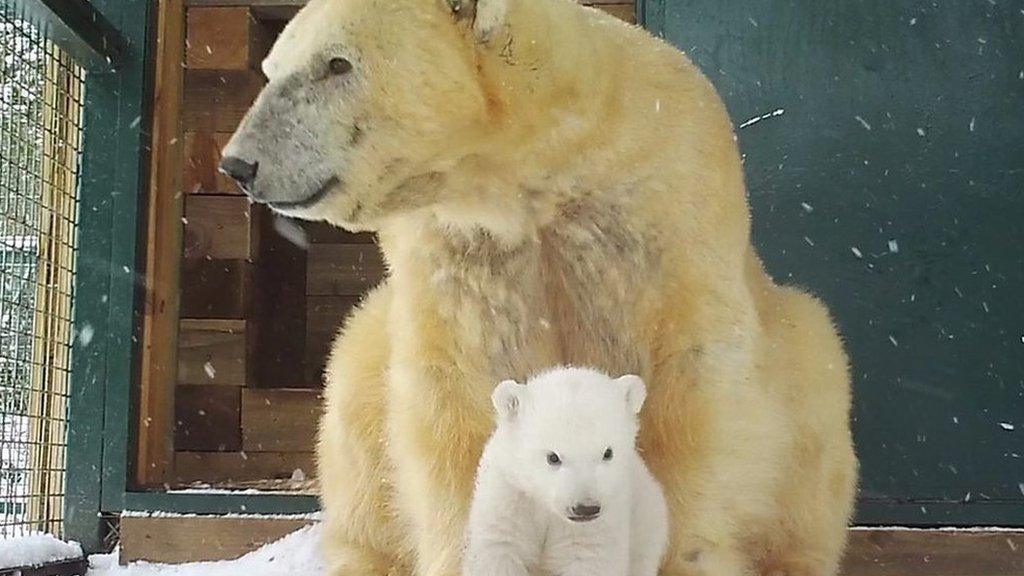Singapore mourns Inuka, the world's only 'tropical polar bear'
- Published
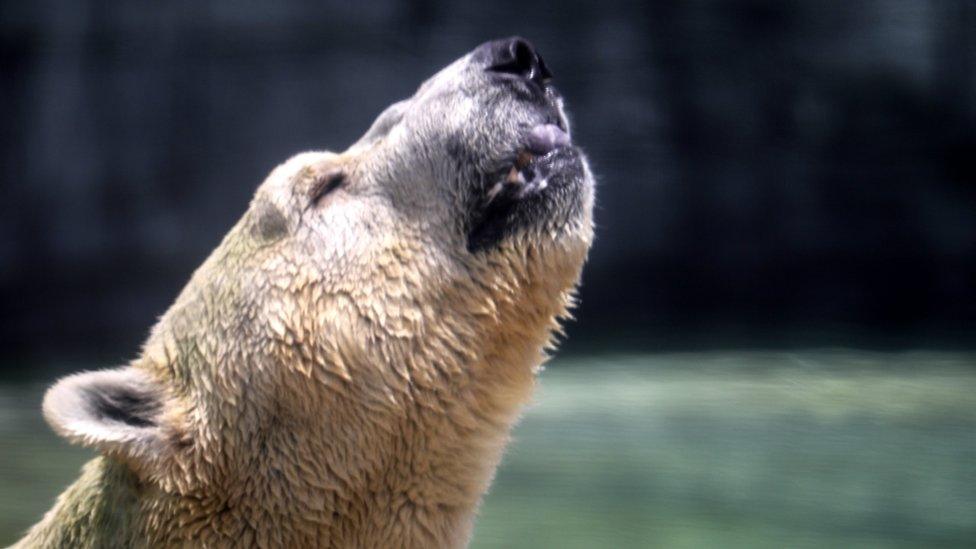
Farewell Inuka, the last tropical polar bear
The only polar bear ever born in the tropics has died in Singapore of age-related ailments.
"We have jointly made the difficult but necessary decision to not revive Inuka from anaesthesia on humane grounds," the Singapore Zoo said in a statement.
The bear was born at the zoo and at 27, had outlived the average wild polar bear by more than a decade.
While hugely popular, his presence has been a subject of controversy among conservationists and animal activists.
Recent physical examinations on Inuka revealed that he had been suffering from arthritis, dental issues and ear infections. Weakening limbs also hindered the aging bear's ability to walk.
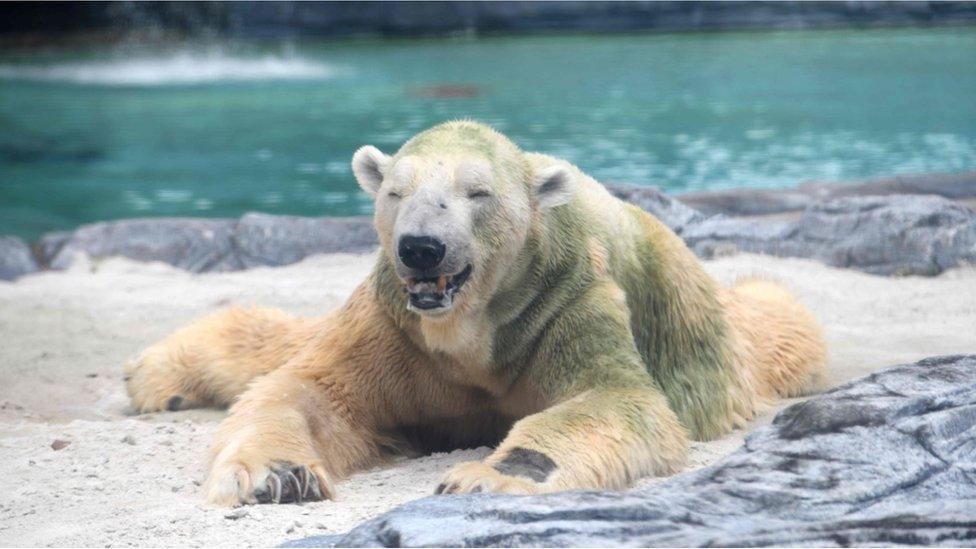
Like humans, age soon caught up with Inuka whose health began to deteriorate
"As much as we would like to keep Inuka with us for as long as possible, our ultimate responsibility is his welfare," said Cheng Wen-haur, Wildlife Reserves Singapore's deputy chief executive officer and chief life sciences officer.
"Our decision to let Inuka go was made with the knowledge that his health issues have seriously impacted his welfare. Beyond the point where we can ensure a good quality of life for Inuka, the greater kindness would be to relieve him from prolonged suffering."
Allow Facebook content?
This article contains content provided by Facebook. We ask for your permission before anything is loaded, as they may be using cookies and other technologies. You may want to read Meta’s Facebook cookie policy, external and privacy policy, external before accepting. To view this content choose ‘accept and continue’.
Singapore sits one degree above the equator and daytime temperatures rarely dip below 25C, making it an odd location for a polar bear.
But Inuka, born on 26 December 1990, was Singapore Zoo's fourth polar bear. He lived in a climate-controlled Frozen Tundra enclosure.

A polar bear in the tropics
His name means Silent Stalker in the Inuit language
The fussy eater enjoyed salmon the most
Keepers said he loved taking dips in his private pool and enjoyed "hydro massages under his waterfall"
A "cheeky and inquisitive soul", he was known to invent his own games and would even hide his toothbrush from his care team

Conservationists and animal rights activists have campaigned against the presence of polar bears in Singapore since their introduction to the national zoo in 1978.
Following animal welfare discussions, the zoo announced in 2006 that it would not bring in any more polar bears after Inuka.
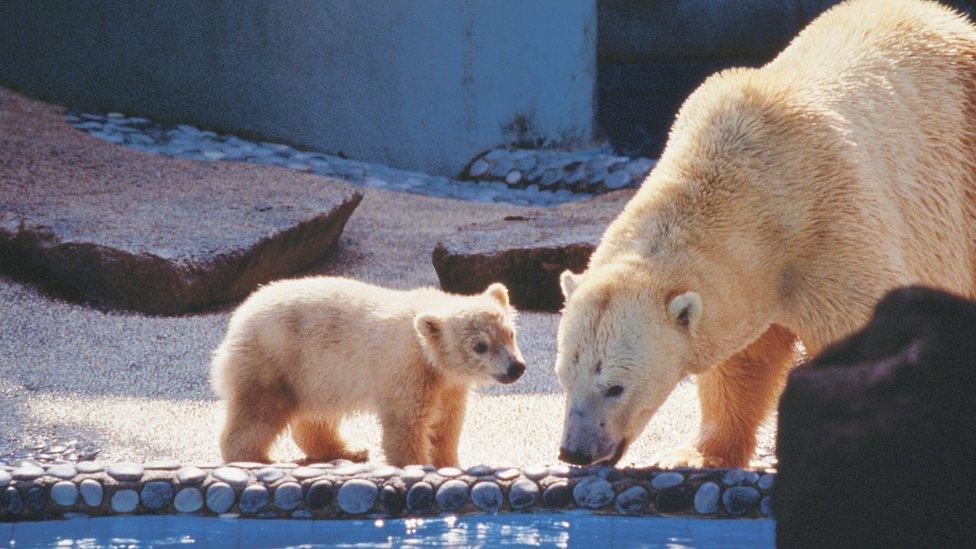
Baby Inuka and his mother Sheba in happier, healthier times
His death has been emotional for many animal lovers in Singapore, who have been expressing their grief on social media and sharing memories of their last polar bear.
"Dear Inuka, you spent your entire life being an exhibit, and yet a delight to the visitors at the zoo," wrote Chong Shangyee on Facebook.
"You had a wonderful life here on earth, even if you never knew the polar ice caps and the cold of the Arctic. May you be free of all pain and suffering and flash photography in heaven. Everyone will miss you."
"Your life and presence lighted up lives and touched many souls in Singapore. Thank you so much Inuka and we will miss you forever," wrote another Facebook user.
Other Singaporeans like Alex Quong, reaffirmed the importance of ending Inuka's legacy.
"Inuka will be missed but no more polar bears please. It's inhumane to keep them here especially with rising temperatures."
- Published16 October 2016
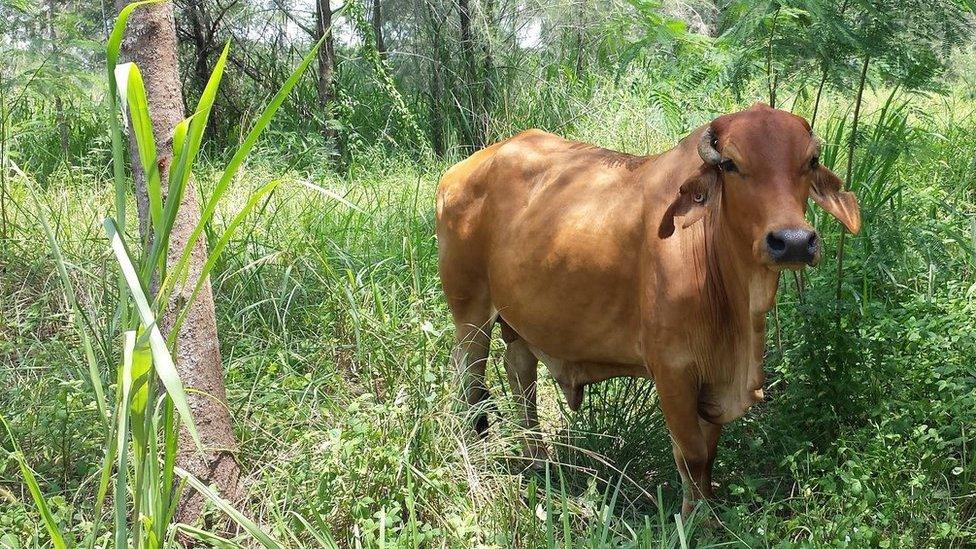
- Published16 March 2018
